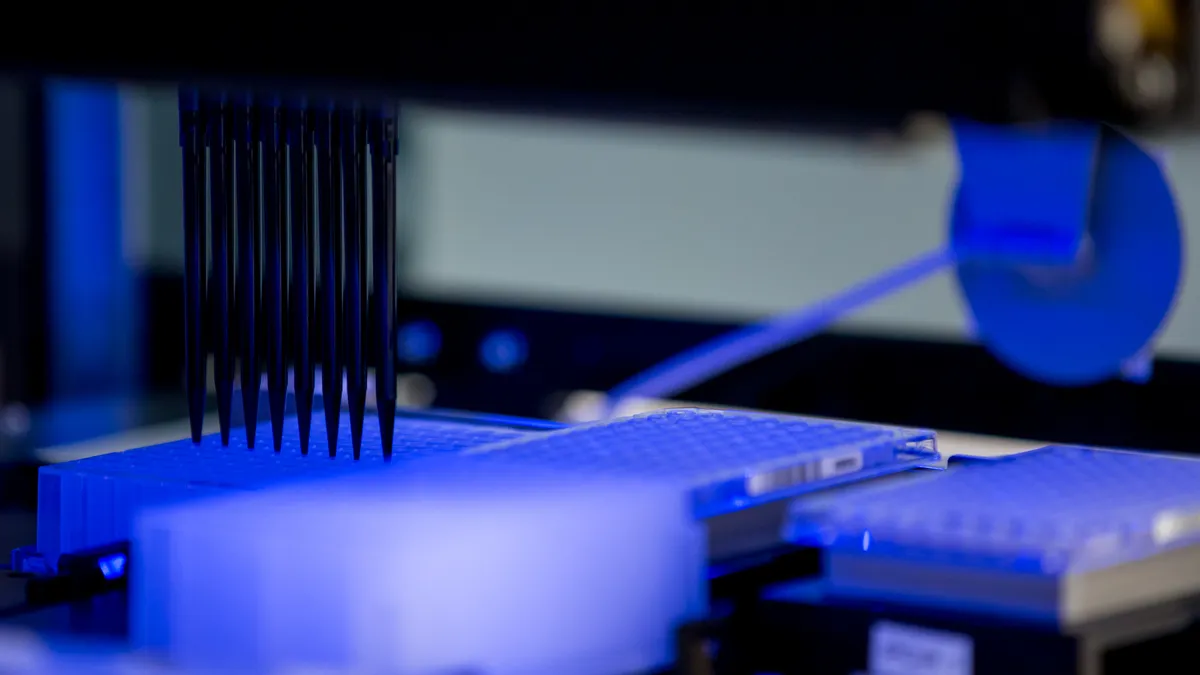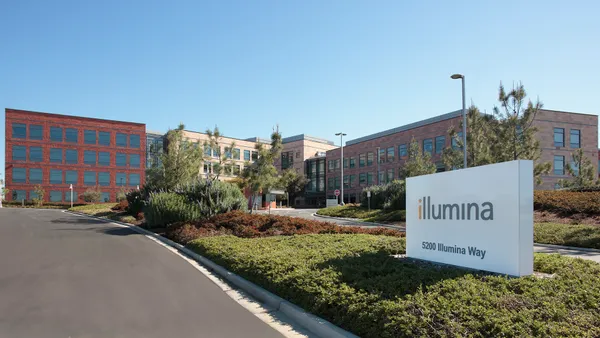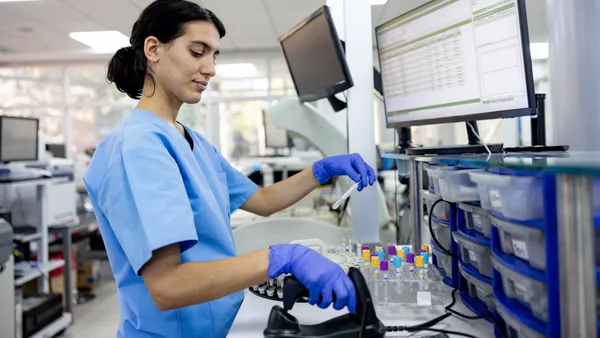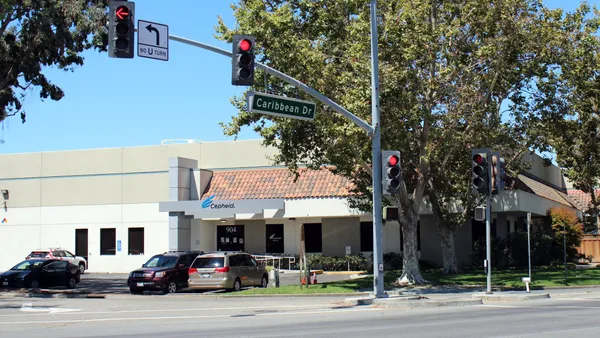Dive Brief:
- Guardant Health released incremental data from a study of its Lunar-2 liquid biopsy that Wall Street analysts characterized as a small but positive step forward as it aims to enter a potential $50 billion plus market.
- The data, presented over the weekend in a poster as part of the Digestive Disease Week virtual meeting, showed an improvement in the machine learning algorithm for the assay. Cowen analysts called the update encouraging, but are awaiting completion of a larger study, called Eclipse, testing the algorithm's performance.
- Rival test maker Exact Sciences also presented new research at the meeting pointing to benefits from higher rates of patient adherence to annual testing with its Cologuard colorectal cancer screening compared to fecal immunochemical tests.
Dive Insight:
Guardant is eyeing what it estimates could be a $50 billion-plus market opportunity in liquid biopsies used to detect, monitor and inform treatment of cancer. The blood testing offers an alternative to tissue obtained through a surgical procedure.
In pursuit of this market, the company has accelerated spending on studies to support its Lunar-1 and Lunar-2 assays, predicting its net loss will more than double in 2020 as a result. The Lunar liquid biopsy is currently limited to researchers and drug developers but is expected eventually to offer an alternative to Cologuard for colon cancer screening.
In its poster presentation, Guardant said a new analysis of its Lunar-2 liquid biopsy assessed against 185 colonoscopy-screened negative patients demonstrated improved specificity of 94%, up from a previous reported performance of 89%, as well as improved sensitivity for colorectal cancer.
SVB Leerink analysts said in a research note the slight improvement in performance of the Lunar assay bodes well for the ultimate data from the Eclipse study when it's presented. That trial was launched in October 2019 and is expected to be completed in 18 to 24 months. However, the analysts noted the timeline is likely to be delayed by the COVID-19 pandemic that is now limiting colonoscopy procedures across the country.
Calling the latest data "promising," Cowen analysts said results from the Eclipse study are needed to truly assess Guardant's competitive outlook.
Exact Sciences also shared abstracts virtually as part of the meeting to bolster the case for the effectiveness of its Cologuard stool-based test. A modeling analysis in one estimated that Cologuard use resulted in an 8.4% to 19.1% increase in life-years gained compared with fecal immunochemical testing (FIT) in people aged 50-75 years, based on "real world" adherence rates of 70% for Cologuard and 40% to 50% for FIT. Another abstract showed Cologuard screenings were more effective than FIT even when patients delayed the tests.
The company is promoting use of telehealth providers for prescription options to encourage screening with Cologuard during the COVID-19 crisis.
Exact Sciences is slated to report first quarter earnings after market close Wednesday, with Guardant following suit Thursday.










